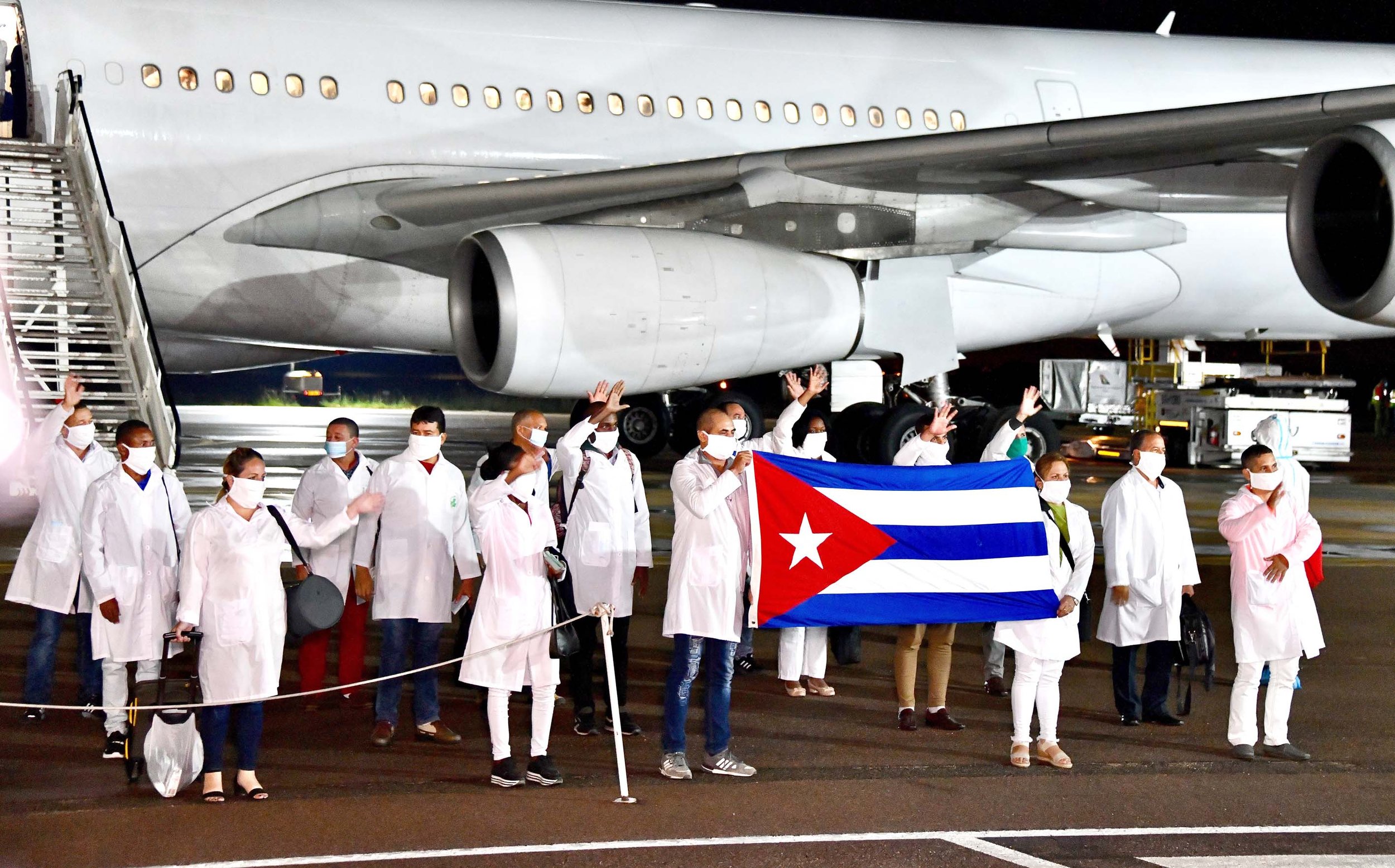What would happen if we sent doctors instead of weapons to other countries?
What we can learn from Cuba’s medical internationalism.
Cuban Health Specialists arrive in South Africa to support efforts to curb the spread of COVID-19. The arrival of the 217 Cuban Health Specialists follows a request made by HE President Cyril Ramaphosa to HE President Díaz Canel Bermúdez of Cuba. [Photo: GCIS]
This week, Stephanie and Michael talk with Dr. John Kirk, professor at Dalhousie University and expert on Cuba’s innovative and inspirational approach to public health and its dedication to ‘medical internationalism’. Medical internationalism – the practice of offering healthcare to those in need, wherever they might be – embodies Cuba’s commitment to healthcare as a human right, an idea that is enshrined in its constitution: “the preamble to [the Cuban constitution] says we have an obligation to share what we have. Not to give our leftovers, but to share what we have.”
This policy of what might seem like radical generosity to those entrenched in healthcare systems fueled by the capitalist prioritization of profit, in fact works:
Cuba’s also got a surplus of doctors. The ratio of patients to doctors in Cuba is three times that of what is found in the US. So, Cuba has a tremendous human potential. And Castro saw that and that's why he was the person who sort of directed medical personnel to work in the developing world.
Since 1960, Cuba has played a significant and effective role in emergencies worldwide, from Chernobyl to Haiti. In addition to collaborating with countries who have acute needs due to natural disaster, war or other misfortune, Cuba educates aspiring doctors from all over the world – and medical school in Cuba is free. Additionally, doctors in Cuba are trained to understand patients as “bio-psycho-social beings,” that is, holistically, with lives and contexts that dramatically impact their health.
This interview does more than highlight an isolated and particular case study, a close look at public health in Cuba, which has a 65 year history of success, offers a possible alternative to the broken healthcare systems in the US and elsewhere.
Transcript archived at Waging Nonviolence

